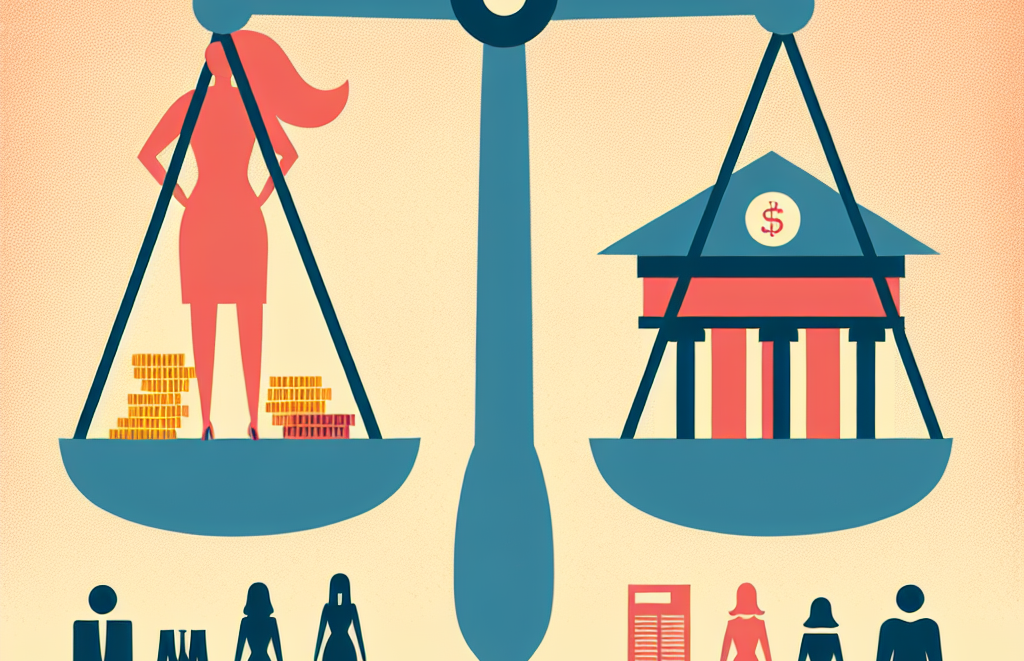
Women, Credit and Financial Discrimination: What’s Changed Since the 80s?
Title: Understanding Credit Reporting Agencies: What They Know About You and Why It Matters
Hello curious consumer! I’m Eleanor “Ellie” Cartwright here—financial watchdog, lifelong policy nerd, and proud defender of the everyday wallet. Today we’re diving into the secretive but extremely powerful world of credit reporting agencies. You’ve likely heard of them—Equifax, Experian, TransUnion—but do you really know what they do, what they know about you, and why your relationship with them could make or break your financial life?
Put on your curiosity cap and let’s expose the walls of this multi-billion-dollar industry, brick by brick.
What Is a Credit Reporting Agency?
Credit reporting agencies (CRAs) are private companies that collect information about your financial behavior—think of them as the digital librarians of your personal credit history. Their main role is to create credit reports, which lenders use to decide whether they should lend you money, approve your mortgage, lease you that shiny apartment, or even offer you a job (yes, seriously!).
Let me give it to you straight: these agencies don’t work for you—they work for lenders. That means your financial story is being written and told by an entity that you have little control over—unless you step into the room and read the script yourself.
The “Big Three” and Their Role
- Equifax: Founded in 1899 (yes, it’s been around since before your grandma’s grandma), Equifax serves customers globally but is headquartered in Atlanta.
- Experian: A Dublin-based data giant, Experian operates in 37 countries. Need we say… they know things.
- TransUnion: Based in Chicago, TransUnion gathers data on more than a billion consumers in over 30 countries. A billion, with a B.
Each of these agencies collects, sorts, and sells information about your credit behavior. But what do they actually know about you?
What Credit Reporting Agencies Track (and It’s More Than You Think)
Every time you swipe a card, pay a loan, or skip a bill, these agencies are listening. And here’s the kicker—they collect both the highlights and the bloopers of your financial journey.
Here’s what they usually gather:
- Personal Identification: Your full name, address, date of birth, Social Security number, and sometimes even your employment history.
- Credit Accounts: Credit cards, student loans, car loans, mortgages—how much you owe, how long you’ve had the accounts, whether you’re making payments on time.
- Payment History: Missed a payment? They know. And it stays there for up to seven years.
- Credit Inquiries: When you apply for a new credit card or loan, that little ding shows up here.
- Public Records: Bankruptcy, tax liens, court judgments—yep, they’re taking notes.
Now, don’t panic. Just because CRAs can know these things doesn’t mean they’re trying to invade your privacy. They exist to provide an objective snapshot of your creditworthiness. But that doesn’t mean the system isn’t flawed, opaque, and sometimes downright unfair. That’s where I come in.
Consumer Rights and the Fair Credit Reporting Act (FCRA)
Nobody likes being watched—unless you at least have the ability to say, “Hey, that’s not true!” That’s why Congress passed the Fair Credit Reporting Act (FCRA) in 1970, giving consumers like you and me more control over our credit data.
Your key rights under FCRA include:
- The right to a free credit report once every 12 months from each agency via AnnualCreditReport.com.
- The right to dispute inaccuracies and demand a timely correction.
- The right to know who pulled your report and why. If someone denies you credit, they must tell you which agency they got your info from.
- The right to limit access to your information for “permissible purposes” only (such as credit, insurance, employment, etc.).
Your credit report isn’t set in stone. It’s more like a whiteboard—and you’ve got the markers. You just need to use them.
How Credit Reports Affect You
Your credit report impacts more than just your Visa credit card application. Lenders, landlords, insurers, and even recruiters often review credit reports as a part of their decision-making process.
Here’s where it really matters:
- Interest Rates: Good credit often means lower rates, saving you thousands over time.
- Rental Applications: Landlords want to make sure you pay on time—red flags here could lose you your dream apartment.
- Job Applications: In some states and industries, employers can check your credit history—especially for finance roles.
- Insurance Premiums: Believe it or not, some insurers may base your premiums on your credit data.
So when people shrug off their credit as “not my problem,” I just smile and say, “Oh honey, it’s everyone’s problem.”
How to Keep Your CRAs Honest
Look, I’m not saying CRAs are evil. But I am saying they’re fallible. Data can be outdated. Mistakes happen. That’s why it’s crucial to monitor your reports regularly and take action when needed.
Steps to Keep Your Credit Report Clean and Accurate:
- Check your report annually: Use AnnualCreditReport.com (the only FTC-authorized site) and check all three bureaus.
- Dispute errors immediately: If you find a mistake, file a dispute directly with the bureau. They’re required by law to investigate in 30 days.
- Consider a credit monitoring service: Especially helpful if you’re recovering from identity theft or rebuilding credit.
- Freeze your credit: Freezing your credit prevents unauthorized access. This is especially important in identity theft scenarios.
The Big Picture: Transparency and Accountability
We live in an age of data. And to be honest, you don’t have to be afraid of what’s on your credit report—as long as you stay informed and engaged. Credit reporting agencies may seem like these towering Fortresses of Financial Fate, but you’ve got a voice, rights, and tools at your disposal.
And let’s be real—understanding your credit isn’t just empowering. It’s necessary. Because when you know what they know, you can take back your narrative and own your financial reputation like the boss you were born to be.
If You Remember Nothing Else, Remember This:
- Pull your credit reports.
- Check them for errors.
- Exercise your rights.
- Don’t just play the credit game—learn the rules and win it.
And if you’re ever in doubt about where to start, don’t be a stranger! I’m here to help you decode policies, protect your finances, and punch bureaucracy in the nose—with facts, of course.
Stay empowered, stay informed, and never underestimate the power of knowing your own story.
—Ellie Cartwright, Financial Policy & Consumer Advocate
Learn more about us or get in touch if you’d like to share your own credit report journey.









Leave a Reply